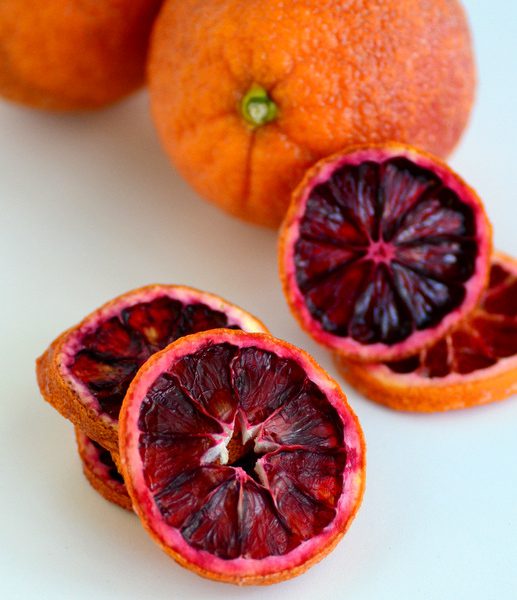Unit | Nutrient Value/100g | Principle |
Kcal | 63 | Energy |
g | 15.50 | Carbohydrates |
g | 1.30 | Protein |
g | 0.30 | fat |
g | 82.30 | water |
g | 4.50 | fiber |
mg | 70 | Calcium |
mg | 0.80 | iron |
mg | 14 | magnesium |
mg | 22 | phosphorus |
mg | 196 | potassium |
mg | 2 | sodium |
Rich in antioxidants and anti-cancer
Fighting free radicals that cause cancer or can damage blood vessels or organs is the most well-known function of antioxidants. Therefore, the high amount of antioxidants and vitamin C in this fruit protects us from dangerous diseases. The results of a study showed that the anthocyanin present in red oranges can help the body to deal with diseases caused by aging.
Bone strength
Calcium is an important and vital substance for maintaining the health of bones and teeth. The calcium in red oranges is very useful for bone health and strength and can be a delicious source of this useful substance.
Reduce liver fat
Red oranges can help reduce the amount of fat in the body, including the liver and pancreas. This fruit can also help burn fat around the belly. Therefore, in addition to being able to improve the overall function of the body's organs, especially the liver, red oranges also help in weight loss.
Easier digestion of food
Dried blood oranges are rich in fiber. Fiber is the substance that the body needs for easier and better digestion of food. Fiber also keeps the glucose level in the body normal.
Faster healing of wounds
One of the benefits of antioxidants in red oranges is to help blood coagulation and the formation of a process that leads to the healing and healing of wounds in the body. In addition, this substance acts as a prevention of infection in the wound. This is very beneficial for diabetic patients.
Vitamin A for eyes and body
Another useful ingredient in red oranges is vitamin A. We all know more or less how much vitamin A can be useful for the health of some parts of the eye, including the retinal tissue, and help us have healthier eyes.
Blood orange or red orange is a type of orange whose fleshy part is the color of blood. This type of orange is usually smaller than normal oranges. The red color of this orange is due to the presence of anthocyanin, which is a common pigment in flowers and fruits, but rare in citrus fruits. The skin of this orange is usually harder than other types and there is a dark color on the skin of some types of these oranges.
Dried Blood orange can be used as one of the low-calorie and highly nutritious citrus fruits. This dry fruit is rich in vitamins C, thiamin, potassium and folate.


